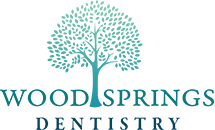Should I use mouthwash?
Brushing your teeth twice daily and flossing daily are healthy habits that dentists recommend. However, the benefits of using a mouthwash or mouth rinse and how to use these products to achieve those benefits may be less understood. While not a replacement for daily brushing and flossing, the use of mouthwash may be a helpful addition to the daily oral hygiene routine for some people.
You’ve probably seen ads for products like LISTERINE® that highlight benefits such as reducing plaque, killing bacteria, and freshening breath. But how effective is mouthwash, really—and what do dentists recommend?
Let’s take a closer look at the different types of mouthwash, their benefits, and how to use them effectively.
Types of Mouthwash
There are two main types of mouthwash: cosmetic and therapeutic.
Cosmetic mouthwash temporarily freshens your breath but doesn’t contain ingredients that address underlying oral health issues. It’s mostly used for its pleasant taste and smell.
Therapeutic mouthwash, on the other hand, includes active ingredients that help reduce bad breath, plaque, gingivitis, and even cavities. Some common ingredients include:
Cetylpyridinium chloride
Chlorhexidine
Essential oils
Fluoride
Peroxide
Therapeutic mouthwashes are available both over-the-counter and by prescription. Checking the label for active ingredients can help you choose one that supports your oral health goals.
Benefits of Using Mouthwash
While using therapeutic mouthwash does not take the place of good habits like brushing and flossing, it can offer several benefits:
Kills bacteria that cause bad breath
Helps prevent cavities
Reduces early signs of gum disease
Provides relief for dry mouth
Soothes mouth sores
Aids in remineralizing tooth enamel
Again, mouthwash isn’t a replacement for brushing and flossing—but it can enhance your daily routine.
When Should I Use Mouthwash?
When adding mouthwash to daily oral hygiene habits, you may wonder: is it best practice to rinse with these products before or after brushing your teeth?
According to the American Dental Association, the question of whether to rinse before or after brushing may depend on personal preference as well as the type of mouthwash used. To maximize the benefit of the oral care products used, manufacturers may recommend a specific order for their use, depending on the ingredients.
Mouthwashes that contain ingredients like calcium hydroxide or aluminum hydroxide can work against the properties of fluoride and reduce the effectiveness of active ingredients. The ADA suggests that you rinse your mouth with water after brushing and before rinsing if these ingredients are present. Always follow the label instructions and the specific recommendations of your dentist when using any oral or dental hygiene product.
How to Use Mouthwash
To get the most out of your mouthwash:
Measure the recommended amount into a small cup.
Pour it into your mouth—do not dilute with water.
Swish for 30 seconds (you can set a timer to be sure).
Spit it out—don’t rinse your mouth with water right after.
While not a replacement for other healthy habits such as brushing or flossing, using therapeutic mouthwash twice a day every day can provide anti-cavity, germ-killing or plaque-prevention benefits.
Wondering if mouthwash is right for you? Our experienced team at WoodSprings Dentistry is here to help! Our dentists strive to provide the best in family and cosmetic dentistry for patients in The Woodlands, Spring, TX, and Creekside Park.
If you are looking for a dentist near you in The Woodlands, Spring, or Creekside Park, book an appointment at WoodSprings Dentistry to make sure that you are getting the most out of your oral care routine.
Please note that the use of mouthwash is not recommended for children under the age of 6 unless recommended by a dentist.

